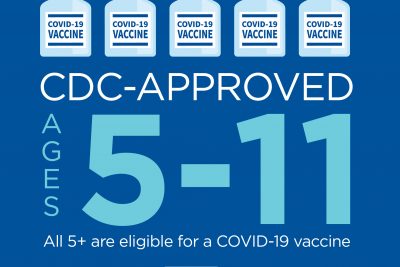It’s time to talk about long COVID in kids. The COVID-19 pandemic has proven to be a constantly unfolding tale. It has been over three years since its onset, and we are now seeing increasing cases of long COVID. This refers to the long-term complications of the COVID-19 infection and includes the physical and psychological symptoms arising from the long-term effect of COVID infection.
Long COVID has affected tens of millions of people worldwide. It has many symptoms from various organs, including the heart, lungs, brain, blood vessels, and gastrointestinal tract. Much of the research on long COVID has been in adults. But there is emerging research in children that long COVID is emerging as an important burden to the communities and the healthcare systems.
Long COVID Symptoms
Most children with the COVID-19 infection have no symptoms or minor symptoms. These symptoms last for a few days except in the high-risk groups. According to the Centers for Disease Control and Prevention, long COVID affects one in five adults who get COVID. In a study published by the Journal of the American Medical Association, between 5 and 10 percent of all children with COVID have ongoing symptoms or develop new ones in the 90 days following infection. Emerging research shows that the high-risk group for developing long COVID symptoms in children includes being five years old or younger, having a severe case of COVID-19, and having underlying medical conditions. However, long COVID has been seen in previously healthy children or kids with minor symptoms at the time of initial infection.
Symptoms of long COVID can affect a child’s physical, mental, or social well-being. It can also result in poor outcomes in the child’s performance at school or in sports. Physical symptoms can include fatigue, breathing difficulty, exercise intolerance, chest tightness, muscle and joint pains, and headaches. Even decreased appetite and weight loss from persistently altered smell and taste sensations. It can affect a child’s mental well-being by causing mood symptoms, sleep disorders, and cognitive difficulties. It can also cause symptoms of brain fog or trouble thinking or concentrating. Children with long COVID are also susceptible to a condition called orthostatic intolerance. This causes them to feel lightheaded, weak, dizzy, or faint when sitting or standing for more than a few minutes.
Parents should be aware that the symptoms of long COVID in children can present as vague symptoms affecting the quality of life or their performance at school. When kids cannot sustain their interest in sports or academic activities that they were partaking in before the pandemic, it can cause increased stress for both the kids and the parents. One of the most worrisome features of long COVID is the potential for heart damage. It is important to know that the symptoms of long COVID in children can differ from those in adults. And depending on the symptoms, children may need a referral to a specialist. This will allow them to evaluate further and to prevent or treat serious complications of long COVID.
More research is still needed to understand long COVID in children clearly. However, following the recommended public health guidelines, getting COVID vaccinations for your children after discussing with your pediatrician, and prompt evaluation of symptoms in your child are some things you can do to reduce the health complications from long COVID.
If your child has mild symptoms and your pediatrician’s office is closed, After Hours is available for walk-in treatment of many common respiratory viruses, including RSV and COVID. They will see patients in order of arrival time unless the patient requires emergency care. However, you may schedule your arrival time online to reduce your wait and help us prepare for your visit.
In case of a medical emergency with children, determine where the nearest accredited Level I pediatric trauma center is located. St. Louis Children’s Hospital has six pediatric ER locations across the St. Louis and southern Illinois region. These include St. Louis Children’s Hospital, Children’s Hospital at Memorial Hospital Belleville, Children’s Hospital at Memorial Hospital Shiloh, Children’s Hospital at Missouri Baptist Medical Center, Children’s Hospital at Northwest HealthCare, and Children’s Hospital at Progress West Hospital.






Comments